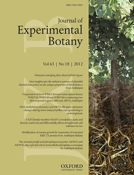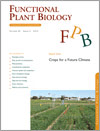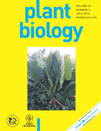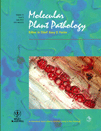
IN VITRO CELLULAR & DEVELOPMENTAL BIOLOGY-PLANT
metrics 2024
Connecting Researchers to Cutting-Edge Plant Studies
Introduction
IN VITRO CELLULAR & DEVELOPMENTAL BIOLOGY-PLANT, published by SPRINGER, is a pivotal scholarly journal dedicated to advancing the understanding of plant cellular biology, developmental processes, and biotechnology. With its ISSN 1054-5476 and E-ISSN 1475-2689, this journal has been a key resource since its inception, converging years from 1972 through 2024. The journal's robust impact is reflected in its 2023 Scopus rankings, placing it in the 77th percentile in the field of Plant Science and showcasing its relevance through quartile classifications such as Q3 in Biotechnology and Q2 in Plant Science. Although not fully open access, its rigorous peer-reviewed articles provide critical insights and foster innovative research, making it an essential read for researchers, professionals, and students dedicated to exploring the complexities of plant biology and biotechnological applications. By regularly featuring cutting-edge studies, IN VITRO CELLULAR & DEVELOPMENTAL BIOLOGY-PLANT serves as a vital platform for exchanging knowledge that drives the field forward.
Metrics 2024
 0.49
0.49 2.20
2.20 2.30
2.30 80
80Metrics History
Rank 2024
Scopus
IF (Web Of Science)
JCI (Web Of Science)
Quartile History
Similar Journals

TISSUE & CELL
Advancing Knowledge in Tissue Structure and FunctionTISSUE & CELL is a prominent academic journal, published by CHURCHILL LIVINGSTONE, that has been at the forefront of research in the fields of cell biology, developmental biology, and miscellaneous areas of medicine since its inception in 1969. With a strong focus on high-quality research, TISSUE & CELL has established itself within the academic community, holding a Q3 ranking in both Cell Biology and Developmental Biology, and a Q2 ranking in Medicine as of 2023. The journal aims to disseminate significant findings that contribute to the understanding of tissue structure and function, helping to bridge the gap between basic biological research and clinical applications. While it operates on a subscription basis and does not currently offer Open Access options, the journal remains a vital resource for researchers, professionals, and students interested in cutting-edge developments in the biological sciences. The journal's address is located in the scenic city of Edinburgh, further establishing its academic heritage in the United Kingdom.

JOURNAL OF EXPERIMENTAL BOTANY
Leading the charge in plant science discoveries.JOURNAL OF EXPERIMENTAL BOTANY, published by Oxford University Press, stands as a premier journal for researchers and professionals in the fields of plant science and physiology. With an illustrious history dating back to 1950, this journal has established itself as a critical resource for advancing our understanding of plant biology and its applications. It is recognized in the top tier of academic publishing, reflected in its Q1 rankings in both Plant Science and Physiology for 2023, and boasts impressive Scopus rankings—placing it in the 96th and 91st percentiles of its respective categories. Though not an open-access journal, it ensures widespread access to groundbreaking research aimed at unraveling the complexities of plant functions and adaptations. As we look toward 2024, the JOURNAL OF EXPERIMENTAL BOTANY continues to play an essential role in fostering innovation, collaboration, and education within this vital area of science.

Plant Biotechnology Reports
Connecting Science and Innovation in Plant ResearchPlant Biotechnology Reports is a premier academic journal published by SPRINGER, focusing on cutting-edge research in the dynamic fields of biotechnology and plant sciences. With an ISSN of 1863-5466 and an E-ISSN of 1863-5474, this journal serves as a vital platform for disseminating high-quality studies from 2008 to 2024. Situated in Japan, it has earned commendable status within the academic community, ranking in the Q2 quartile for Plant Science and Q3 for Biotechnology in 2023, placing it among the top-tier publications in its domain. Notably, it ranks #160/516 in the Scopus category for Agricultural and Biological Sciences - Plant Science, reflecting its impact and reach in the relevant fields. While it does not currently offer open access, the journal remains an essential resource for researchers, professionals, and students eager to explore breakthroughs in plant biotechnology. Researchers contribute significant advancements that not only drive scientific understanding but also foster innovation in agricultural practices, making this journal pivotal for both academic and practical applications in the realm of biotechnology.

JOURNAL OF PLANT BIOLOGY
Empowering Discoveries in Plant PhysiologyJOURNAL OF PLANT BIOLOGY, published by SPRINGER HEIDELBERG, is a leading academic journal dedicated to advancing the field of plant science. With an impressive impact factor signifying its high citation rate and rigorous peer-review process, this journal ranks in the Q1 category within Plant Science, placing it among the top-tier periodicals in the discipline. Established in 1999, it has become an essential resource for researchers, professionals, and students seeking the latest findings and developments in plant biology. The journal fosters a collaborative environment for sharing innovative research, exploring ecological interactions, and understanding plant physiology, thereby contributing significantly to advancements in sustainable agriculture and environmental conservation. Its high Scopus ranking of 102 out of 516 in the category of Agricultural and Biological Sciences further underscores its relevance and impact within the scientific community. For those interested in cutting-edge research, JOURNAL OF PLANT BIOLOGY is a vital source of knowledge, offering insights that are crucial for the future of plant science.

JOURNAL OF PLANT RESEARCH
Pioneering Discoveries in Plant Science.JOURNAL OF PLANT RESEARCH, published by SPRINGER JAPAN KK, is a leading academic journal that has carved a niche in the field of Plant Science. With its ISSN 0918-9440 and E-ISSN 1618-0860, this journal has been disseminating high-quality research since its inception in 1993 and continues to be essential reading for academics and practitioners alike, aiming to bridge the gap between innovative plant research and practical applications. The journal is highly regarded, holding a prestigious Q1 ranking in Plant Science for 2023, and is positioned in the top 80th percentile within the Scopus rankings for Agricultural and Biological Sciences. The journal's coverage includes a wealth of topics pertinent to advancing our understanding of plant biology, ecology, and sustainable agricultural practices. Although it operates under a subscription model, its influence in the research community remains profound, making it a vital resource for contemporary studies in plant-related disciplines.

FUNCTIONAL PLANT BIOLOGY
Pioneering Research in Agronomy and Crop ScienceFUNCTIONAL PLANT BIOLOGY is a prestigious academic journal published by CSIRO PUBLISHING, specializing in the dynamic fields of Agronomy and Crop Science as well as Plant Science. With an ISSN of 1445-4408 and an E-ISSN of 1445-4416, this journal provides a platform for innovative research that addresses key challenges in plant functional biology, ranging from genetics and physiology to ecological interactions. As evidenced by its impact factor and competitive rankings, including Q1 in Agronomy and Crop Science and Q2 in Plant Science, FUNCTIONAL PLANT BIOLOGY holds a significant place in the scientific community, ranking in the top tiers of Scopus for both categories. The journal supports open access options, ensuring that critical research is widely disseminated and accessible to researchers, professionals, and students around the globe. With a publication history spanning from 2002 to 2024, the journal continues to foster the advancement of plant science, making significant contributions to sustainable agricultural practices and ecological research in Australia and beyond.

PLANTA
Elevating botanical research to new heights.PLANTA, published by SPRINGER, stands as a pivotal journal in the field of plant sciences and genetics, known for its rigorous peer-reviewed research that has influenced the advancement of botanical science since its inception in 1925. With an impressive trajectory of convergence from the years 1925 to 1945, and again from 1947 to 2024, this journal maintains a strong reputation, currently categorized in the prestigious Q1 tier of Plant Science and Q2 tier in Genetics as of 2023. The journal is recognized for its high impact, ranked #64 out of 516 in Plant Science by Scopus, representing the top 87th percentile within its category, while also securing a strong position in Genetics with a #92 rank. The journal serves as a critical resource for researchers, professionals, and students who are eager to explore the complex genetics, biochemistry, and evolutionary biology of plants. Though primarily subscription-based, the quality of the research published in PLANTA makes it an essential reading for anyone serious about advancing their knowledge and understanding of plant sciences.

PLANT BIOLOGY
Advancing the Frontiers of Plant SciencePLANT BIOLOGY is a prestigious academic journal published by Wiley, dedicated to advancing knowledge in the fields of plant science, ecology, and evolutionary biology. With an impressive impact factor and ranking in the Q1 category for Ecology, Evolution, Behavior and Systematics, and Plant Science as of 2023, it stands at the forefront of research dissemination. The journal encompasses a broad scope of plant biology topics, providing a critical platform for researchers to share innovative findings and foster interdisciplinary collaboration. Available in both print (ISSN: 1435-8603) and online formats (E-ISSN: 1438-8677), it ensures accessibility through open access options. As a crucial resource for professionals, researchers, and students alike, PLANT BIOLOGY cultivates a deeper understanding of plant systems and their ecological significance, making it an essential addition to the library of anyone dedicated to the study of biology and the environment.

Plant Gene
Pioneering Research in Plant Genomics and BiotechnologyPlant Gene is an esteemed academic journal dedicated to the comprehensive study of plant genetics, genomics, and biotechnology. Published by Elsevier, this journal operates from its base in the Netherlands and has made significant strides since its inception in 2015, with a converged year span extending until 2024. As an integral resource in the field, Plant Gene is categorized in the Q2 quartile for Plant Science and Q3 for Biochemistry, Biotechnology, and Genetics as per the 2023 evaluations, reflecting its growing influence and quality of research. With an impactful presence in Scopus rankings—positioned at #145 in Plant Science—this journal serves as a platform for presenting innovative findings and advancing knowledge in plant science. Researchers, professionals, and students will find access to cutting-edge research articles that not only drive the scientific community forward but also offer invaluable insights into the genetic mechanisms underpinning plant development and resilience. While the journal currently operates under a subscription-based model, it aims to broaden accessibility and foster a diverse range of scholarly discussions in the ever-evolving field of plant genetics.

MOLECULAR PLANT PATHOLOGY
Innovating solutions for sustainable agriculture.MOLECULAR PLANT PATHOLOGY, published by Wiley, is a leading academic journal in the fields of Agronomy, Molecular Biology, Plant Science, and Soil Science, with a strong reputation underscored by its impressive Q1 rankings across multiple categories and a Scopus rank placing it in the top echelons of its fields. Since embracing Open Access in 2019, this journal has significantly broadened its reach, enhancing visibility and accessibility for researchers, professionals, and students alike. With a commitment to publishing high-quality, innovative research, MOLECULAR PLANT PATHOLOGY serves as a critical platform for advancing our understanding of plant diseases and pathogenesis, contributing to the development of sustainable agricultural practices. As a vital resource for scholarly communication, it fosters collaboration among scientists and supports the sharing of vital knowledge that addresses issues of global food security and environmental health.